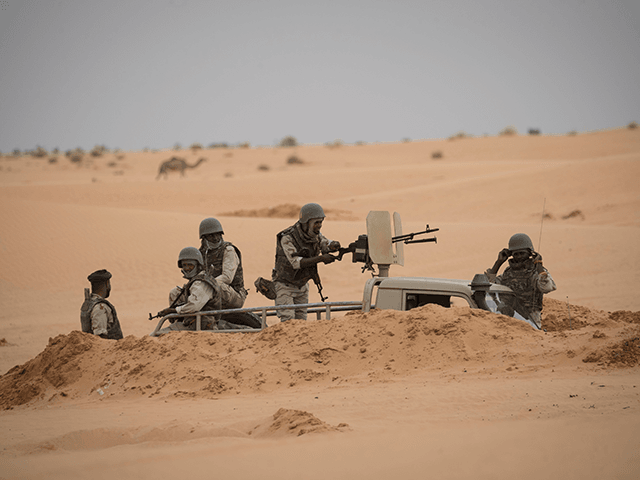U.N. Secretary-General Antonio Guterres told Agence France-Presse (AFP) on Thursday he fears the Taliban terror group’s recent seizure of power in Afghanistan may “embolden” fellow jihadists in the African Sahel to increase terror attacks in the hopes of similarly gaining control over their home countries.
Asked by AFP “about the risks of an Afghanistan-like scenario occurring in the Sahel,” Guterres said he believed there may be a “psychological and real impact” among Islamic terrorists in the region, which spans horizontally across Africa along the southern rim of the Sahara Desert.
“There is a real danger,” the U.N. chief acknowledged.”[Some] terrorist groups may feel enthusiastic about what happened and have ambitions beyond what they thought a few months ago.”
The Taliban, a jihadist terror group based on Sunni Islam, staged a military campaign starting in May to recapture Afghanistan after previously ruling the country — which stands at the strategic crossroads of South and Central Asia — from 1996-2001. The Taliban successfully wrested control of Afghanistan’s key provinces and cities from the country’s U.S.-backed government and army over the course of several weeks.
After regaining power over most of the country by early August, the jihadists homed in on Kabul, Afghanistan’s national capital, and penetrated the city in less than ten days. The Taliban on August 15 declared itself the sole, legitimate ruler of Afghanistan after deposing Kabul’s U.S.-backed government.
Guterres on Thursday warned that the Taliban’s historic reconquering of Afghanistan in record time has almost certainly reignited the determination of the Sahel’s myriad Islamist terror groups to push forward with their established campaigns of jihad, or Islamic holy war on unbelievers, in the region.
The terrorists’ ardent devotion to jihad includes a belief that death in the name of the struggle “is desirable,” Guterres told AFP. He admitted that the state-recruited armies of governments ruling countries in the Sahel are “disintegrating in front of” these types of fanatical militants.
“We saw this in Mosul in Iraq, in Mali during the first push towards Bamako, we saw it in Mozambique,” the U.N. chief recalled.
Guterres said it was “essential to reinforce security mechanisms in the Sahel” to defend against the newly bolstered morale of regional terrorists in the wake of the Taliban’s Afghan victory.
The Sahel includes portions of ten African nations including Senegal, Mauritania, Mali, Burkina Faso, Algeria, Niger, Nigeria, Chad, Sudan, and Eritrea. Nigerian President Muhammadu Buhari warned in an August 15 op-ed published by the Financial Times that the international “war on terror” was increasingly shifting to “a new frontline in Africa.”
Ken McCallum, the director of Britain’s MI5 security service, told the BBC on September 10 the Taliban’s toppling of Kabul last month provided an overnight “psychological boost, a morale boost” to jihadists worldwide, increasing the chances of future terror attacks.
“There is no doubt that recent events in Afghanistan will have heartened and emboldened some of those extremists,” he said.

COMMENTS
Please let us know if you're having issues with commenting.